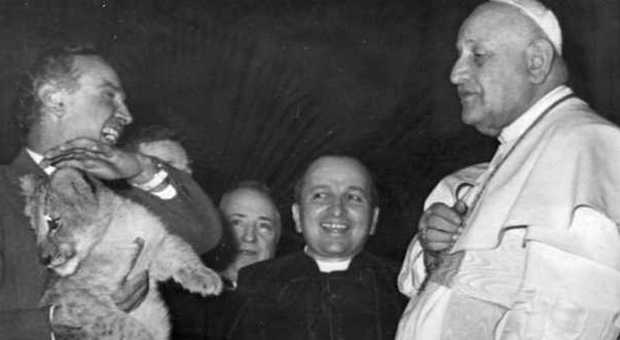There is a basic common ground between the sacredness of the priesthood for Roncalli and the tormented yearning for faith in Pasolini’s poetry: it is the common ground of the peasant’s world. Pope John said: “My father is a peasant who every day picks up his spade and digs … and I am nothing more than my father …”.
I ask myself, how much are we lacking today of that honest culture which reassured and helped us to recognise ourselves in a unique, common origin, which is rural civilisation.
“After I left home when I was about 10 years old” – said Pope John – “I read many books and learned many things which you couldn’t have taught me. But those few things that I had learned from you at home are still the most precious and important ones and they sustain and give life and warmth to the many others learned later in many years of study …”.
At that time, one lived mainly by work in the fields. But also, in the suburbs of the cities, factory chimneys took over ever more the horizons of the sky, the peasants became workers and this created separations and deep disparity with the countryside. One of these was illiteracy. So much so that the widely held opinion by the middle classes was confirmed in the conviction that the people who continued to live in the country were inexorably condemned to ignorance. Only now do we recognise that this was not so. That the peasant’s knowledge was a “knowing something else”, different to what is learned from words written in books, a knowledge that comes directly from the things themselves: fields, clods of earth, trees, animals and seasons. To recognise the signs of whether there would be good weather or storms. And the well organised network of ditches to irrigate the fields. Clean water that could be drunk. And as the farmers were aware of their limits when faced with the mystery of Nature, they placed all their trust – or better, their faith – in the succour of a good harvest.
We are by now aware of the bankrupt state of all the so-called “advanced” economies. Not completely due to the consequences of what we have had to face. But much more serious is the moral breakdown of our society. In 1903, the sub deacon Angelo Roncalli, still a student in Rome, wrote: “What confusion is in my soul! Today, with my little experience, I think I can say that more than half of the people, for some period in their life, become disgraceful animals. And the priests? My God, I tremble thinking that there are many who disfigure their saintly character. Today nothing can surprise me … so much wickedness, even in your ministers … and you Jesus … you deign to come into their hands … lodge in their hearts without punishing them instantly … My Lord, I tremble also for myself …”.
Again: “I humbly present myself. Like every other man who lives down here, I come from a family and from a specific place. Having the good luck to have a healthy physique, with a little good sense to help me see things quickly and clearly, with a disposition to love men who keep me faithful to the law of the Gospel, respecting my rights and those of others, who stop me being improper to anybody and encourage me to do good to everyone. I come from humble beginnings and was educated to a contented and blessed poverty. Providence took me from my native village and made me walk the ways of the world in the East and the West, placing me with people of different religions and ideologies, in contact with acute and threatening social problems …”.
Translation by Antoinette Canini
© All rights reserved
© RIPRODUZIONE RISERVATA
